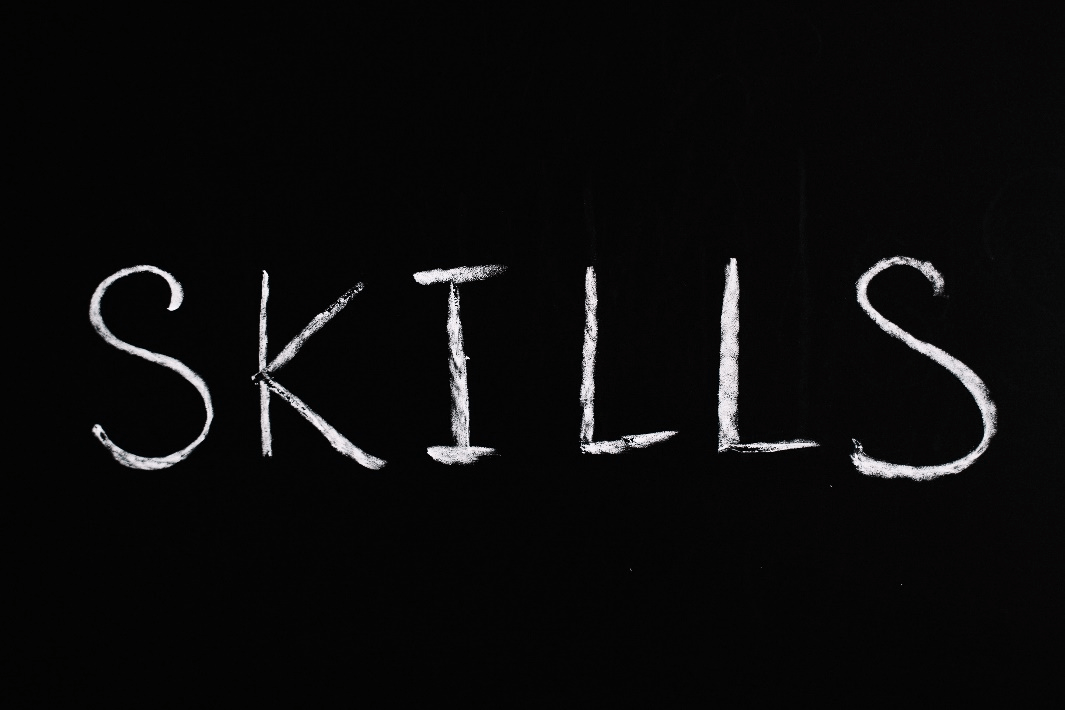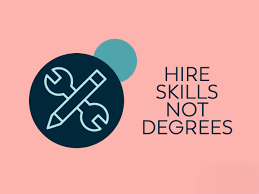Skills Definition
Skills are the abilities, competencies, and proficiencies that allow them to carry out activities, solve problems, or accomplish particular outcomes. Various methods can be used to gain skills, including education, training, experience, and practice. In general, they can be divided into two groups: hard skills and soft skills.
Technical or occupation-specific abilities are "hard skills" and are frequently quantitative and measurable. Hard skills examples include project management, bookkeeping, data analysis, graphic design, and programming. These competencies are unique to particular sectors or professions and are frequently learned through formal schooling or specialized training.

On the other hand, soft skills are more subjective and pertain to interpersonal, social, and emotional skills that allow people to engage with others effectively. Some soft skills include communication, leadership, teamwork, flexibility, problem-solving, critical thinking, and time management. Soft skills are extremely transferable and important in various situations, such as the profession, intimate relationships, and daily life.
Personal and professional success depends on a person's ability to carry out their job responsibilities, accomplish their goals, and change with the times. Employers place a high value on them since they can greatly affect prospects for career progression. People must constantly learn and improve their talents to succeed in their chosen industries and stay relevant in today's dynamic and competitive environment.
Types of Skills:
Skills can be broadly categorized into several types, including:
- Hard or technical skills are particular, quantifiable abilities frequently picked up through formal education, training, or experience. Coding, data analysis, bookkeeping, project management, language expertise, and using specialized equipment or software are a few examples of hard skills.
- Soft skills, also called interpersonal, people, or emotional intelligence, are non-technical, subjective abilities related to connecting and handling social circumstances. Some soft skills include communication, leadership, teamwork, flexibility, problem-solving, critical thinking, negotiation, empathy, and time management.
- These abilities can be used in various situations unrelated to a particular job or industry. Transferable abilities are frequently learned through various experiences, including volunteer work, hobbies, or personal interests, and they can be helpful in various jobs or vocations. Transferable skills include teamwork, problem-solving, critical thinking, leadership, and communication.
- Skills essential for a given job or profession and e unique to that role or industry are known as job-specific skills. Medical procedures for healthcare experts, legal research for attorneys, financial analysis for accountants, or design software for graphic designers are a few examples of job-specific skills.

- Adaptive skills, sometimes learning or cognitive skills, are aptitudes that allow people to pick up new information, draw lessons from their experiences, and adjust to changing conditions. Critical thinking, creativity, problem-solving, learning agility, and adaptability are examples of adaptive talents useful in navigating unpredictable and dynamic contexts.
- Life skills: These are abilities that are necessary for functioning in daily life, not just the profession. Financial literacy, time management, communication, decision-making, emotional intelligence, and self-management are all examples of life skills. These abilities are crucial for relationships, personal growth, and general well-being.
Skills or Degree?
Although both skills and degrees significantly contribute to personal and professional development, they differ in several ways. Here are 20 comparisons and contrasts with their corresponding significance.
Similarities between Skills and Degrees:
- Both are attainable through formal education, hands-on experience, and training.
- Both can improve a person's employability and career prospects.
- Both can support improvement as well as individual growth.
- Both can be used to demonstrate proficiency and subject-matter knowledge.
- Building and sustaining anyone may take time, energy, and dedication.
- Both can be beneficial assets when exploring prospects for job progression.
- Employers, the business community, and society can all recognize and value both.
- Both can give a feeling of success and accomplishment.
- Both methods can be used to overcome obstacles and accomplish goals.
- Through lifelong learning, both can be continuously grown and improved.

Differences between Skills and Degrees:
- Degrees are official credentials granted by educational organizations, whereas skills are distinct abilities an individual possesses.
- Skills can be learned in various ways, such as workshops, self-directed learning, or on-the-job training, whereas degrees often demand formal examinations and organized courses of study.
- While degrees are often validated via transcripts from school or certifications, skills can be shown via application in real life.
- While degrees are frequently specialized to one topic of study, skills can be used in various sectors and positions.
- Unlike degrees, which are normally achieved during formal schooling in early adulthood, skills can be acquired at many phases of life.
- While degrees are normally obtained through a set curriculum, ongoing practice, and practical experience can develop and enhance skills.
- While receiving a degree may require paying tuition fees and other costs, acquiring skills can be done without spending much money.
- Skills can be independently evaluated and developed, whereas educational institutions give out degrees under predetermined standards.
- Rather than getting a new degree, skills can more quickly be updated and adjusted to meet shifting work market demands.
- Skills may take precedence over degrees in some professions or businesses where performance is valued over formal education.
Which is a Must - Skills or Degrees?
Depending on the industry, work role, and personal career ambitions, degrees may or may not be more important than skills. In other professions, such as trade work or entrepreneurship, talents may be more important than degrees since they show real-world aptitude.
- A degree could be required to be eligible for a professional license or certification in some disciplines, such as medicine or law. Because they complement one another and help to create a well-rounded profile, many companies favor a combination of talents and degrees.
- Practical knowledge and real-world experience are often more important than a degree, especially in fields that need in-depth technical knowledge. While talents can improve a person's performance and effectiveness in their chosen area, degrees can offer a strong foundation in knowledge and may be required for some career routes. Skills that are adaptable, transferrable, and in line with industry trends may be more important than degrees in today's quickly evolving work market.

- A relevant degree and ongoing skill development can work well together to keep people competitive and help them succeed. When weighing the value of talents against degrees, it's necessary to consider the particular criteria of the position or industry as well as personal ability, hobbies, and career ambitions.
- A solid foundation for personal and professional success can be built using relevant skills, real-world experience, and formal education, including degrees.
In conclusion, both degrees and skills have value and can be extremely important to a person's personal and professional success.
Some of the best examples of people in today's society who are successful without a college education are
Today's world is full of remarkable examples of people who have succeeded by utilizing their abilities, talents, and willpower rather than a college degree. Here are a few well-known instances:
- Mark Zuckerberg: Mark Zuckerberg, co-founder, and CEO of Facebook, left Harvard University to pursue his passion for coding and build a social networking site that would grow to become one of the biggest and most successful tech firms in the world.
- Bill Gates: One of the richest people in the world and the co-founder of Microsoft, Bill Gates left Harvard to create his own software company, which later transformed the technology sector.
- Steve Jobs: The late co-founder and CEO of Apple Inc., Steve Jobs, left Reed College to launch the renowned iPhone, iPad, and Mac devices, which helped to define the current consumer electronics market.

- Richard Branson: The Virgin Group's founder and British business mogul Richard Branson dropped out of school at the age of 16 and established a vast empire of over 400 businesses covering a variety of sectors, including music, aviation, telecommunications, and hotels.
- Ellen DeGeneres: Though the well-known comedian, actress, and television host did not graduate college, she made the most of her skills in comedy and entertainment to become a very successful and significant person in the entertainment business.
- Mark Cuban: Despite not having a college degree, the multi-billionaire businessman, investor, and owner of the Dallas Mavericks basketball franchise, Mark Cuban, built his fortune through several fruitful forays into technology, investing, and media.
- Rachael Ray: The well-known celebrity chef, author, and television host developed her culinary abilities through cooking shows, cookbooks, and product endorsements. Rachael Ray did not attend culinary school but created a successful career in the food industry.
- Peter Jackson: Despite not having a traditional film education, the Academy Award-winning director of the "Lord of the Rings" trilogy and "The Hobbit" films learned how to create visual effects, tell stories, and produce films by trial and error.
- David Karp: David Karp, the creator of the well-known microblogging site Tumblr, dropped out of high school to follow his passion for coding. He eventually developed a successful social media platform that Yahoo purchased for $1.1 billion.

- Robert Ek: Daniel Ek, the co-founder, and CEO of Spotify, did not attend college but instead honed his coding and business talents, which allowed him to build one of the biggest music streaming services in the world.
These instances show that, although having a college education can be beneficial, success is not necessarily determined by it. In the modern world, success in the workplace can also be greatly influenced by one's abilities, will, inventiveness, and tenacity. However, it's crucial to remember that these people worked very hard to develop their skills, and their success can be ascribed to several other things rather than just the fact that they don't have a college degree.
Conclusion:
In conclusion, the debate between skills and degree is complex, with valid arguments. While a college degree can provide individuals with valuable knowledge, experiences, and opportunities, it is only sometimes a requirement for success. Skills, determination, and creativity can also be crucial in achieving professional success today, exemplified by numerous successful individuals without college degrees. However, it's important to note that these individuals have put in significant effort and hard work to develop their skills. Their success is not solely attributed to the absence of a college degree but rather a combination of various factors. Ultimately, it's up to individuals to weigh their options and decide what path is best for them based on their goals, interests, and circumstances.
|


 For Videos Join Our Youtube Channel: Join Now
For Videos Join Our Youtube Channel: Join Now














